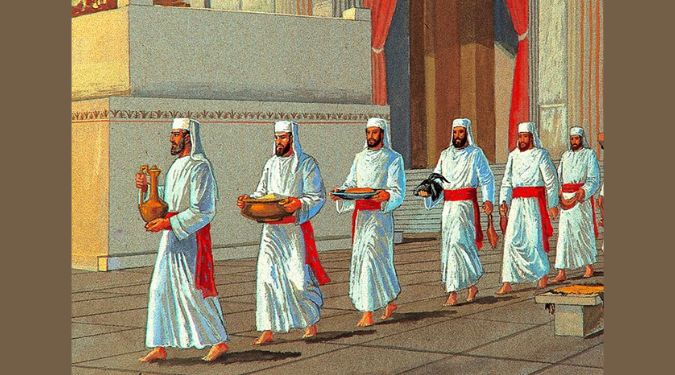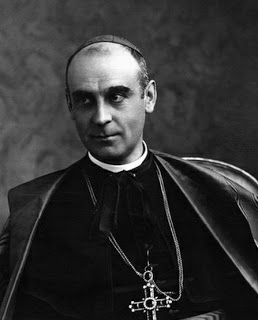After a few months of wandering in the desert, God brought the Israelites to the base of Mount Sinai and had them stop. In preparation for His visit to them to give Moses the Law, he had them stop, purify themselves physically and spiritually. We read in the 19th chapter of Exodus:
And the Lord said to Moses, “Go to the people and consecrate them today and tomorrow, and let them wash their garments, and be ready by the third day; for on the third day the Lord will come down upon Mount Sinai in the sight of all the people. Exodus 19:10-11
And in verse verse 15:
And he said to the people, “Be ready by the third day; do not go near a woman.
They couldn’t even have sex.
And then He made a promise to them, or rather, He gave them a deeper insight into a promise he already made to Abraham long before. Let’s remind ourselves of that original promise to Abraham. In the 12th chapter of Genesis, we read:
Now the Lord said to Abram, “Go from your country and your kindred and your father’s house to the land that I will show you. And I will make of you a great nation, and I will bless you, and make your name great, so that you will be a blessing. I will bless those who bless you, and him who curses you I will curse; and by you all the families of the earth shall bless themselves. Genesis 12:1-3
God repeated to Isaac in Genesis 26:4, and to Jacob in Genesis 28:14: “By you all the families of the earth shall bless themselves.”
So now, back to the base of Mount Sinai. God revealed a deeper aspect of that promise. Here’s what he said:
“and you shall be to me a kingdom of priests and a holy nation.” Exodus 19:6
A Kingdom of Priests. Now what does a priest do? He offers sacrifice. That’s the job of any priest in any religion. So what did God mean by “a kingdom of priests”?
We know that not all Israelites were priests, but only those who were members of the Tribe of Levi, the Levites, to which Moses and Aaron belonged. In the third chapter of the book of Numbers we read that the Levites represented or took the place of all of Israel’s male firstborn. So God couldn’t have been referring only to the Levites.
God said to all the Israelite men:
“You shall be men consecrated to me;” Exodus 22:31a RSV
A bit later God commanded that every man will bring a sacrifice for the Feast of Unleavened Bread, i.e. Passover:
None shall appear before me empty-handed. Exodus 23:15b
So certainly this means, in great part, that all of Israel would participate in the worship of God, and they would take initiative in doing so. This sets a trajectory for the fulfilment of the Kingdom of Priests in Jesus, mentioned by Saint Peter in his first letter and by Saint John, in the Book of Revelation:
“But you are a chosen race, a royal priesthood, a holy nation, God’s own people…”1 Peter 2:9
“To him who loves us and has freed us from our sins by his blood and made us a kingdom, priests to his God and Father…” Revelation 1:5b-6
This Kingdom of Priests inaugurated at the base of Mount Sinai prefigures the Church as we see in the Catechism of the Catholic Church:
“Christ, high priest and unique mediator, has made of the Church “a kingdom, priests for his God and Father.” The whole community of believers is, as such, priestly… ” CCC 1546
Saint Paul, in his Letter to the Romans, gets to the heart of the matter:
I appeal to you therefore, brethren, by the mercies of God, to present your bodies as a living sacrifice, holy and acceptable to God, which is your spiritual worship. Romans 12:1
Let’s get real and get practical. How can we offer our bodies as a living sacrifice? For the answer, let’s turn to St. Thomas Aquinas who writes about this verse In his Commentary on Paul’s Letter to the Romans:
958. Now man possesses three goods.
- First, he has the soul, which is presented to God by humble devotion and contrition: “The sacrifice acceptable to God is a contrite spirit” (Psalm 51:17).
- Secondly, a man has external goods, which he presents to God by giving alms: “Do not neglect to do good and to share what you have, for such sacrifices are pleasing to God” (Hebrews 13:16).
- Thirdly, a man has the good which is his own body. In regard to this he says: present, i.e., to God, your bodies, as a spiritual sacrifice. Now an animal offered to God was called a sacrifice [hostia], either because it was offered for victory over enemies [hostium] or for protection from enemies [hostium] or because it was offered in the entrance [ostium] of the Tabernacle. A person can present his body to God as a sacrifice in three ways.
- First, when he exposes his body to suffering and death for God’s sake, as it is said of Christ: “He gave himself up for us, a fragrant offering and sacrifice to God” (Ephesians 5:2); and as the Apostle says of himself: “Even if I am to be poured as a libation upon the sacrificial offering of your faith, I rejoice” (Philippians 2:17).
- Secondly, when he weakens his body by fasts and watchings in the service of God: “I pommel my body and subdue it” (I Corinthians 9:27). [watchings are prayer vigils]
- Thirdly, when he uses his body to perform acts of righteousness and of divine worship: “Present your members to serve righteousness for sanctification” (Romans 6:19). [Worship, after all, is a bodily act, especially for Catholics.]
In summary, St. Thomas mentions at least seven ways that you and I as laypeople can act as priests in this Kingdom of Priests: daily devotion, contrition, giving alms, martyrdom, fasts, prayer vigils, good acts, and lastly, worship.



